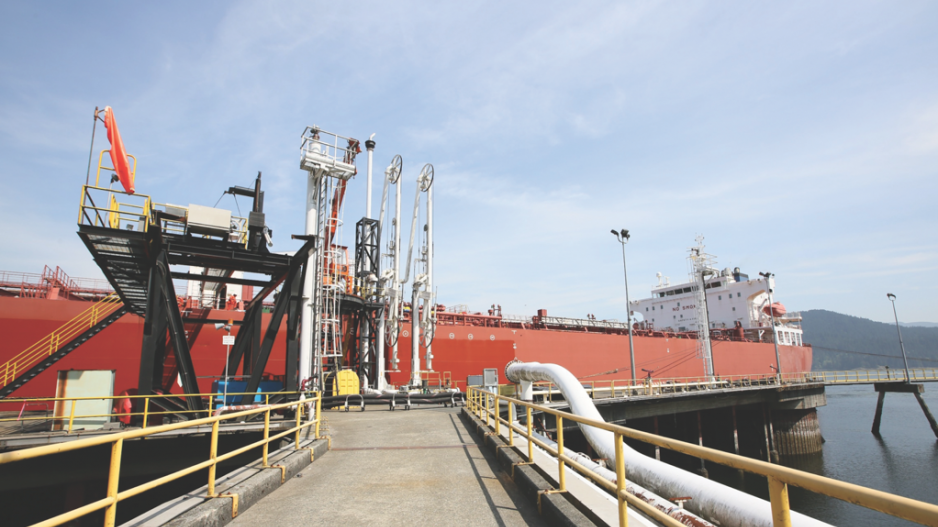For three of the largest Asian energy markets, the reactions to the Federal Court of Appeal’s August decision to squash Ottawa’s previous approval of the Trans Mountain pipeline elicited a wide range of responses – some optimistic, others much less so.
For China, the world’s largest importer of oil, Canada’s decision to send the controversial pipeline project back to Square 1 should concern Canadians more than Chinese citizens, one Chinese academic said, because Beijing has been aggressively adding potential suppliers to its partnership list through its One Belt, One Road (OBOR, also known as BRI) regional development initiative.
As such, it would be Canadian economic interests that have the most to lose because China’s thirst for oil has found other – and, in many cases, more convenient – sources that Beijing can pursue without waiting for Ottawa to untangle the Trans Mountain issue.
“[Beijing’s] approach is similar to their approach on general China-Canada relations,” said Wang Yong, director of the Center for International Political Economy at Peking University. “On one hand, China wants to have good relations with Canada. On the other hand, China has made a lot of progress in ensuring energy supply in recent years – through efforts related to the BRI in the Middle East, Russia, Africa, Latin America and even the United States.”
Trans Mountain’s delay and China’s possible move elsewhere are major issues for the Canadian oil sector, one analyst says, because the market remains the most attractive in Asia for Canada’s energy exports – despite general expectations that Chinese oil import demand will slow given the country’s March 1 tax regulations limiting the profit margins for independent refiners.
“I think for Canada, just the location, when you export oilsand crude from the West Coast, we think China would be the more feasible market than others like India, given the location and the distance between Canada and China – as well as the number of refineries with capacity along coastal China,” said Sushant Gupta, a Singapore-based industry research director with consultancy Wood Mackenzie.
That lack of Canadian oil access to India – with or without the pipeline – is a big missed opportunity. Gupta said that while China’s oil imports in June fell to 8.36 million barrels per day (bpd) – the lowest since December – Indian demand is surging.
Wood Mackenzie is projecting India’s oil demand to grow by 3.5 million bpd from 2017 to 2035, which would account for about a third of global oil demand growth during that period. Given that India gets a significant amount of oil from Iran – a source it will need to replace because of U.S. sanctions against Iranian exports – observers say the opportunity is there for other players to jump in.
“All eyes are on India at the moment,” Gupta said. “When you look at 10 years ago, a lot of people were talking about joint ventures in China; now, their attention is clearly swinging toward India.”
India currently imports 85% of its oil. The Middle East (55%) is its biggest supplier, followed by Latin America (10% to 11%), West Africa (8% to 9%) and North America (3%).
One major Asian market that continues to be bullish on Western Canada’s energy resources is Japan. While the country sees its oil imports declining over the long term, many observers are keeping an eye on projects such as Trans Mountain to gauge Canadian sentiments on major energy export projects for other resources. The most attractive commodity for Japan, says Institute of Energy Economics Japan senior analyst Hiroshi Hashimoto, remains liquefied natural gas (LNG) – another resource heavily discussed in B.C. And while LNG isn’t linked to the project, Hashimoto said Japan looks at the Trans Mountain pipeline situation with some guarded optimism because it reflects Canada’s commitment to environmental and socially sensible energy development – something that makes Canadian energy exports more attractive to Japanese consumers.
“Turning your eyes to another aspect of this, it is an opportunity to proceed with the project in a more environmentally responsible manner,” Hashimoto said. “From one side, yes, the court decision can be negative to Canada’s project development … but if we are considering energy sources outside Japan, we’d prefer the development of those energy sources to be responsible. Companies here recognize that; if they use energy that’s not environmentally responsible, consumers would be aware of that and respond.”
Japan’s Mitsubishi Corp. is one of the companies backing the LNG Canada joint venture in Kitimat.
The Japanese public has been especially sensitive to environmental energy development since March 2011, when the Tohoku/Sendai earthquake and tsunami crippled the Fukushima nuclear plant. Since then, Tokyo has tried to restart the country’s nuclear power facilities (all were shut down after 2011) but has faced vocal public opposition each time.
Hashimoto admits that the Trans Mountain case also shows the types of delays that an LNG project might face, but again added that for Japan, its efforts to diversify its energy sources to include Canadian imports will not change.
“We know that, in Canada, it is difficult to quickly proceed with large-scale project development,” he said, noting some officials hope B.C. LNG will be ready by the middle of the 2020s. “But we still have confidence in Canada as a supplier. We know that – when compared to areas such as the Middle East and the United States – progress may be slow. But we still hope that some exports will happen.” •




